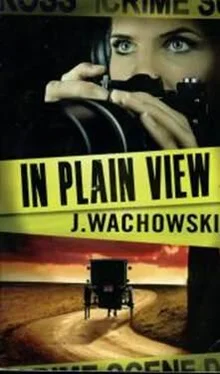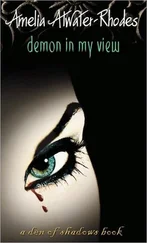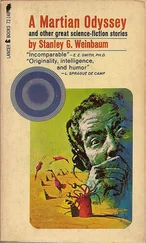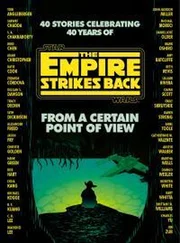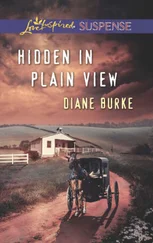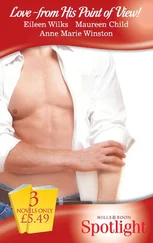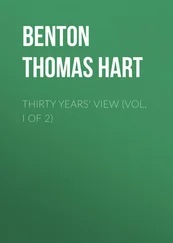“Okay,” Jenny mumbled. She wrapped her arms around her ribs and her shoulders rolled forward into two sharp points. Her chest seemed to cave in at the center.
“You and Tonya’ll have a good time,” I insisted.
Jenny stared back at me, blank-faced and big-eyed.
Everybody nodded. Nobody cared. I didn’t even try to hug her goodbye.
11:48:21 a.m.
It was a twenty-minute drive to the Clarion Newspaper Worldwide Headquarters. The red brick shoebox that held offices and press machinery was in a very industrial neighborhood surrounded by car dealerships, auto repair shops and a no-tell motel with a flashing sign promoting: All Parking in Rear.
Interesting zoning code.
Ainsley seemed relieved the newspaper had its parking right out front. Before we got out of the truck, I decided to say something.
“For the record, College, I like to keep my personal life out of the office. I’d appreciate it if you’d forget whatever you know about my home life.”
“You got it,” he chirped, very sincerely.
Gratitude makes me sheepish, but my thanks were equally sincere.
As I planned, we arrived a few minutes early. Through the glass double doors, I could see the receptionist packing up. She came over to lock the front and looked suspiciously in our direction.
“Don’t.” I cautioned Ainsley against knocking. People started filtering out the back doors and heading for the cars parked nearby. I made a show of looking around as if we were there to pick someone up. “I think Melton wants to keep this meeting private. She’ll be gone in a minute.”
“How do you know?” he asked.
“All the papers I’ve ever known roll up the welcome mat at noon on the dot on Saturdays. I’m guessing that’s why Melton told us to be sure to come after twelve.”
“What papers have you worked at?” Ainsley asked, dangling his preposition like a good midwesterner.
“I started taking pictures for the Cook County Register back in high school, then did news photography all the way through college.” He looked impressed; I shrugged. “Paid for my books.”
“They say print is really different from TV news.”
“Some of it’s the same: the low pay, crappy hours, psycho egos everywhere. The motives are different, though.”
The lights went out in the lobby. I tried not to look impatient.
“Motives?”
“People go into newspaper work for the stories, usually. They get a thrill out of knowing stuff nobody else knows. Knowing stuff first.” I glanced at my watch again. “TV people want to know stuff first, too. But it’s mostly because they want you to notice them; they like the glam. They’re attracted to the glow of the set, like a bug to a flame.”
Ainsley leaned against the glass and tested his come-hither smile. “Is that why you went into television? The ‘glam’?”
“I said ‘mostly.’” I could see his questions percolating. I answered an easy one. “There are a lot more people watching television these days, than reading newspapers. I prefer to swim in the big pond.”
“So you like the competition.”
“Partly.” I snuck a glance at his face and added, “Also, greater opportunity for impact.”
His brow furrowed. I figured I’d lost him, until he said, “Impact won’t be much of an option at WWST, will it?”
Damn. He was with me after all. I shrugged. “Could be worse.”
Melton appeared, looking furtive but smiling. He snapped open the door and bustled us through the waiting area.
“This way.” The buzz coming off him was palpable. He must have found something interesting.
The Clarion ’s interior was remarkably similar to WWST. Brown on brown. The fourth estate is not renowned for the decor and gardens. Beyond the reception area, we passed through the semi-public classified area and on into the anti-public newsroom. We wound our way through a maze of desks, randomly personalized with widgety clutter, family photos and the all-pervasive paper mosaic of shorthand notes, post-its and newsprint. Some of the computer monitors looked older than Ainsley. The space was democratically at-large but mostly deserted. Here and there somebody sat typing or talking on the phone.
Melton paid no attention and made a bee-line for the back hall. He’d cultivated a slouching sort of amble that almost made him seem as if he wasn’t hurrying. “Plate room’s right through here. Jeff’s at lunch so we can talk without,” his voice dropped to conspiracy levels, “you know-interruptions.”
The plate room is sort of a demilitarized zone between The Press and the press-the people who think up the words and the people who actually ink them onto paper. Nobody hangs out there. Melton was taking no chances we’d be interrupted.
We crowded behind an old relic A-frame into a far corner, where the light tables had been left on, burning through the page proofs with that particular shade of pale gray and fluorescent glow I recognized. I could smell the developer from the nearby darkroom. I crossed my arms over my chest and smiled, feeling right at home.
This was going to be good.
Melton handed me an eight-by-eleven envelope, wiggling like a puppy. “I got him. Employment info, adoption history…”
“Spill it.”
“…and, did I mention, his arrest record? ” Excellent instincts; Melton knew his lead.
“Curzon busted the guy?” I asked with more than a reasonable amount of glee.
“Not the sheriff. His cousin.”
“Ha! And now I got him, ” I laughed and put up a palm. “Can I get a witness?”
Ainsley slapped my hand.
“Let it be a lesson to you, College. Give us the short version, Mel.”
“It’s an unusual situation because the Amish don’t register births like we do. What I found was Tom Jost’s real father left the area with his son when the kid was young. He went west-California, New Mexico-somewhere like that. The next thing we know, Mr. Jost is petitioning to remove the kid-he’s ten years old by now-from an Arizona foster home, bring him back to Illinois. Kid’s dad is listed as deceased.”
“Fast forward to the good stuff, please.”
“Right, right.” Melton waved a hand, shuffling through papers. “The next bit of paper I found on him is his application for the fire service. He’d just graduated from a fire school in Elmhurst. That was three years ago. Nothing else interesting happens ’til last August, about a month before his death. When fireman Tom gets pulled over with a minor in the car. Cop writes it up-”
“Curzon’s cousin?”
“Right-as contributing to a minor’s curfew violation. I think there was some kind of scuffle, couldn’t confirm that, but Officer Curzon ended up putting them both in the backseat and giving them a ride to the station. Jost’s car was towed and-get this, the tow driver ‘happened to notice’ the trunk was full of porno magazines.”
“‘Happened to notice’?” Ainsley repeated.
“Them tow-truck drivers got X-ray eyes,” I mocked. “Go on.”
“Apparently, Curzon-the-cousin wrote that part up as well, and sent it to Jost’s lieutenant at the fire station.”
“How’d you find that out?”
Melton crooked a bashful shrug. “Buddy of mine at the fire station.”
“Not very discreet,” Ainsley tsk’d.
“‘Telephone, telegraph or tell a fireman,’” Melton said. “Those men sleep together two nights a week. There are no secrets.”
“But why tell you?”
“I get the feeling none of them really liked Jost, for some reason. Bad blood.” Melton shrugged. He seemed convinced the guy had been telling the truth.
“Any idea who the minor was?” I asked.
“No. But the record mentioned Amish clothing.”
Читать дальше
